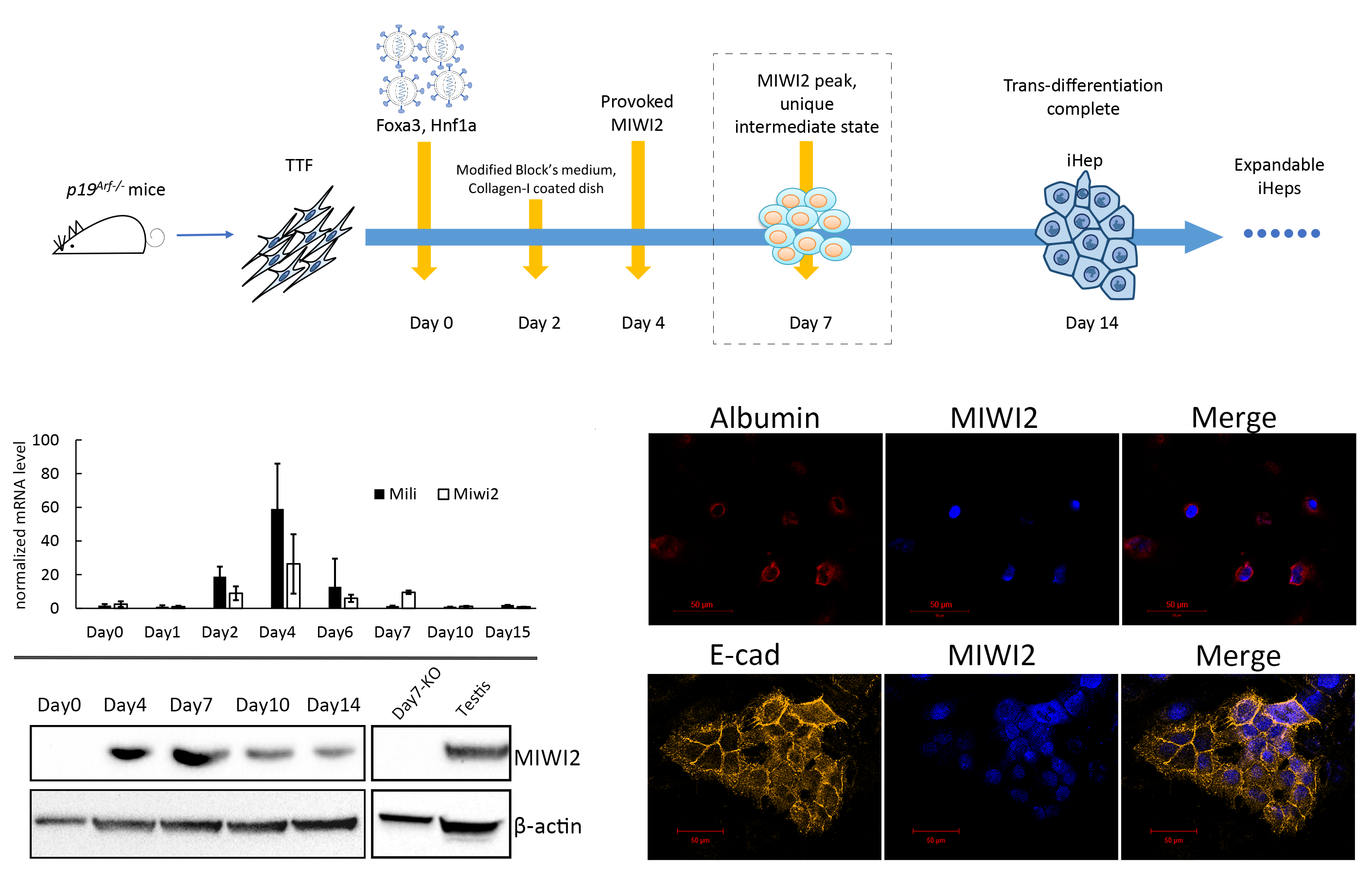Recently, Prof. Guang Yang and Dr. Xiaojie Shi in Lab of Phenotypic Screen (LPS) of SIAIS reported important functions of PIWI-piRNA, a kind of non-coding functional RNA system, inregulation of cell direct reprogramming (also called transdifferentiation), which is the first report of function of piRNAs in normal differentiated mammalian somatic cells. Now this research work is published in “Stem Cells”, a famous international academic journal in the field of stem cells.

Illustration of negative regulation role MIWI2 in cell direct reprogramming
Liver failure caused by cirrhosis, cancer, acute poisoning and so on is one major cause of mortality in Asia, especially in China, for which Liver cell therapy is an important clinical treatment. However cell source is the problem to solve for the application. Cell reprogramming or direct reprogramming has become a critical brand new direction in stem cell research field. Direct reprogramming of other cells towards hepatocyte is a promising technology providing enough cells for liver cell therapy, drug discovery, in vitro research model, etc. However, molecular mechanisms behind it remain elusive, which holds back its clinical application gravely.
Hepatocyte direct reprogramming is one of the research areas in LPS. Now they focus on mechanism study and antibody application on this area through set up of invitro model of hepatocyte direct reprogramming. Lately they found that a kind of PIWI protein, MIWI2, and corresponding piRNAs, which are generally expressed with important functions in germ line cell development and carcinogenesis, play significant roles of negative regulation in hepatocyte direct reprogramming, too. Researchers proposed the role of “intracellular immune surveillance” of genome instability to PIWI-piRNAs. This result not only provides valuable basis for further optimization and application of direct reprogramming but also is an important discovery in the non-coding small RNA study field, indicating versatile functions of PIWI-piRNAs in cell fate conversion.

Temporal and spatial expression of MIWI2 during middle stage of direct reprogramming process of fibroblast to hepatocyte
Assistant Professor Pengyu Huang in School of Life Science and Technology, helped to establish the in vitro model of hepatocyte direct reprogramming. Research assistant professor Xiaojie Shi and Ph.D. student Zipei Xiao of LPS are the co-first authors of the article. PI of LPS, Guang Yang is the corresponding author of the article. The work has been financed by NSFC.
Article link: https://stemcellsjournals.onlinelibrary.wiley.com/doi/full/10.1002/stem.2994



